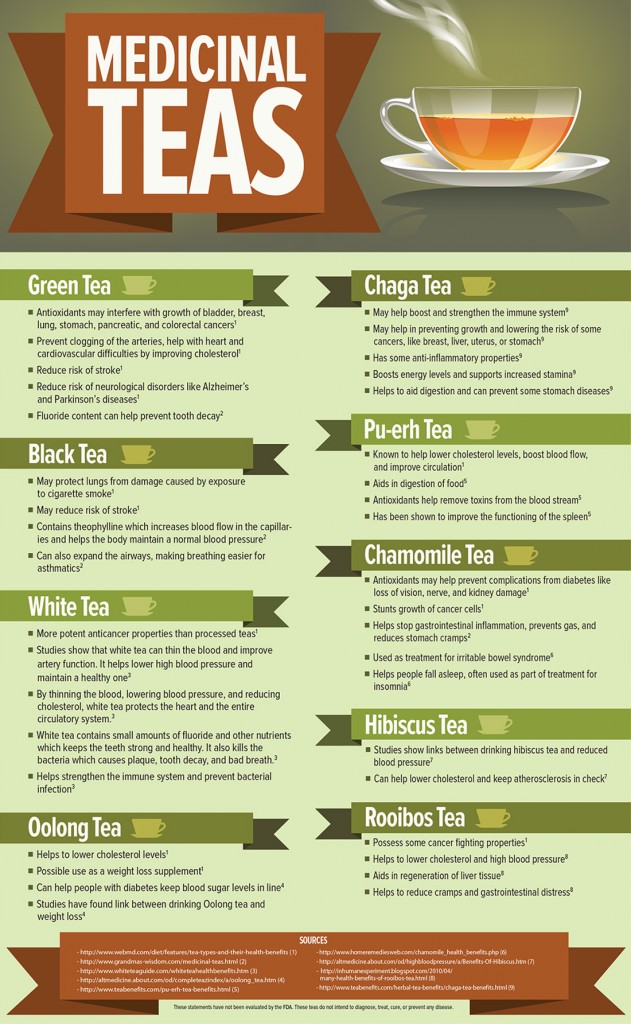Tea varieties are just like wine or coffee, there are hundreds of tea types, blends, styles, countries of origins and more just waiting to be explored. While Green Tea seems to get the most attention for being beneficial to your health, research suggests that many other tea varieties have valuable medicinal properties and natural, holistic medicine uses as well.
All varieties of tea begin with a tea leaf from the same plant, Camellia sinensis, which is a shrub native to China and India. All these teas also have caffeine and theanine, which affect the brain and seem to heighten mental alertness.
Green Tea – Packed with antioxidants, a lesser known benefit is the fluoride content of green tea can help prevent tooth decay.
Chaga Tea – Can help boost and strengthen the immune system along with increase energy levels and samina.
Black Tea – Helps increase blood flow and expand your airways.
Pu-erh Tea – Boosts blood flow and improve circulation along with aiding in digestion.
White Tea – White tea protects the heart and the entire circulatory system by thinning the blood, lowering blood pressure and reducing cholesterol.
Chamomile Tea – Often used as a sleep aid, chamomile can also help with gastrointestinal issues.
Hibiscus Tea – Linked to reduced blood pressure and lowering cholesterol levels.
Oolong Tea – Oolong tea has been linked to weight loss and keeping blood sugars in line.
Rooibos Tea – Along with some cancer fighting properties, Rooibos tea can help lower cholesterol and high blood pressure.
This infographic from Sayan Health highlights some of the health benefits of nine varieties of tea:
Tea has been valued as having important health benefits and has been used as an herbal remedy (both internally and externally) to treat a wide array of ailments by various cultures for centuries.
Although a lot of questions remain about how long tea needs to be steeped for the most benefit, and how much you need to drink, nutritionists seem to agree that any tea is good tea.


